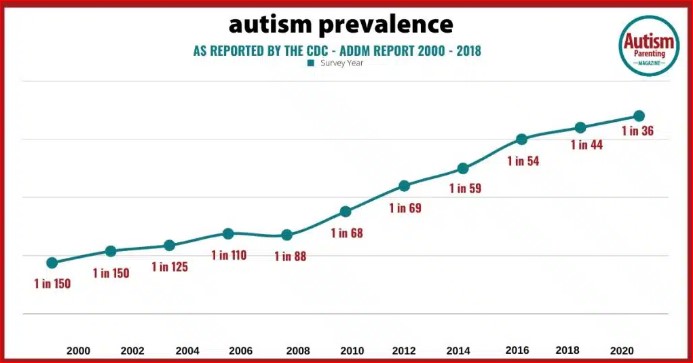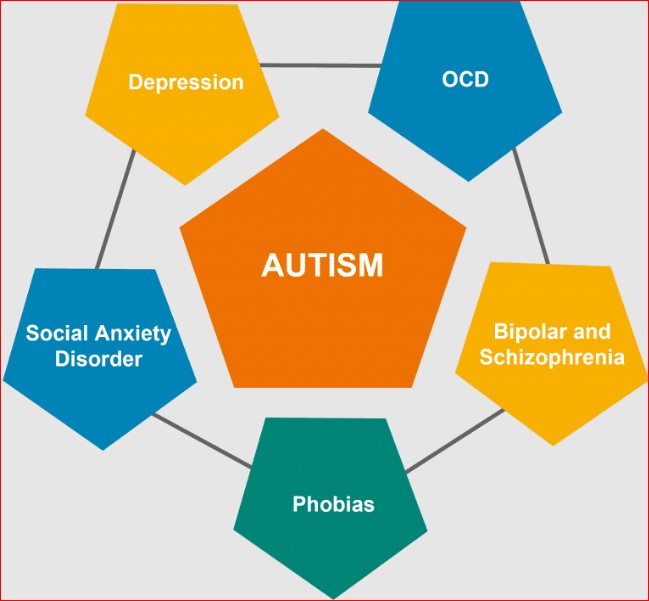6 Common Disorders That Can Be Misdiagnosed Autism
30th January 2024

Autism is caused by neurodevelopmental abnormalities that are characterized by intense adherence to routines and rituals, trouble reading neurotypical social signals and conventions, and sensory sensitivity. An autistic person does not ‘grow out’ of their autism and hence autism awareness courses for teachers can be highly valuable. If you are concerned about a diagnosis you have taken for a child, it's best to talk to a specialist. However, this article will focus on why autism can be misdiagnosed and what those misdiagnoses can be.
Why Can Autism Be Misdiagnosed?
Since many autism tests are intended for children, it can be difficult for adults with autism who were not diagnosed when they were younger to locate a clinician who can evaluate them. Many people with autism also have another mental health condition. They are occasionally misdiagnosed as a result. In addition to testing and behavioral observations conducted by the evaluator, psychological assessments for autism encompass behavioral observations submitted by parents and educators.

Educators may misdiagnose autistic people due to bias, ignorance of neurodivergence, and masking. Furthermore, various racial and gender groups may occasionally go unnoticed in the abundance of research on autism diagnosis as it mostly concentrates on the condition's appearance in white boys.
Hey, do you follow us on Social Media? We regularly share upgraded educational content, tips, feedback and more. Check us out by clicking the profiles here - Facebook / Twitter / LinkedIn / Pinterest / Instagram / YouTube
Conditions That Can Be Misdiagnosed With Autism

Here are a few disorders that can often be confused with autism, but are not always correctly diagnosed:
- Anxiety Disorders
Autism may be the cause of worry in a person with a social anxiety disorder. If they see that their anxiety is caused by erratic interactions or trouble reading body language and voice tonality, it might be secondary to autism.
Similarly, a person may have received a false diagnosis of generalized anxiety disorder if they discover that their ‘anxious’ behaviors do not correspond with nervous behaviors.
- Attention Deficit Hyperactivity Disorder
Almost 50% of autistic individuals are also diagnosed with ADHD. Hence the possibility of someone fitting the criteria for both diagnoses is rather common. If an individual thinks that their symptoms are not adequately explained by their ADHD diagnosis, they may benefit from receiving an extra evaluation that includes an autism test.
The diagnostic criteria for these two conditions overlap because concentration, communication, and routine difficulties are shared by individuals with ADHD and autistic persons.
- Borderline Personality Disorder
The symptoms of borderline personality disorder (BPD) include impulsive conduct, unstable moods, and trouble forming and maintaining interpersonal connections. Similar to the other diagnoses, a person with autism may also suffer from a personality disorder.
But occasionally and this is more likely in women that neurodiversity is mistaken as a personality problem.
- Obsessive Compulsive Disorder
The symptoms of obsessive-compulsive disorder (OCD) include unpleasant, intrusive thoughts or pictures that are hard to ignore or get rid of, as well as compulsive actions that are regularly performed in an attempt to calm the anxiety the ideas generate. Obsessions, compulsions, or both can be experienced by those who have OCD.
Some people with autism also suffer from OCD. However, because repeated language or movement can mimic compulsive behavior, stimming activity is frequently mistakenly classified as a compulsion.
- Post Traumatic Stress Disorder
A great deal of stress results from masking, or attempting to act in a neurotypical manner when this is not how you typically react. Furthermore, compared to neurotypicals, autistic people are more likely to experience bullying, abuse, and exploitation.
As a result, a significant portion of autistic individuals have experienced trauma in the past. The large percentage of autistic persons who also have a history of trauma may contribute to the overlap between symptoms of trauma and autistic presentation. As a result, individuals with autism may receive a diagnosis of post-traumatic stress disorder and their behaviors may be linked to trauma rather than neurodivergent characteristics.
- Psychotic Disorder
There are similarities between symptoms of psychosis and autism illnesses, such as difficulties speaking and social disengagement. Additionally, personality tests that pose particular questions about reality and perception are frequently used to diagnose psychosis.
Sometimes, autistic persons interpret the questions on these tests more literally than the test designers intended, which might lead to an increase in psychosis scales.
Diagnose Properly For Optimum Results
Even in the psychology community, there are misunderstandings about what autism looks like and how it is frequently misdiagnosed. As a teacher who has completed special education courses, you must be able to differentiate autism from all other disorders mentioned above. In case you are unsure of your diagnosis, you can always reach out to a specialist to get your facts checked. This will allow you to frame a proper plan to cater to the individual needs of the students.
We believe education should be accessible for everyone. That’s why we don’t charge for our blogs. Find the right course that will help you in your career with us, contact us at - 1800–212–6400. You can mail us at act@asiancollegeofteachers.com
Written By: Sanjana Chowdhury